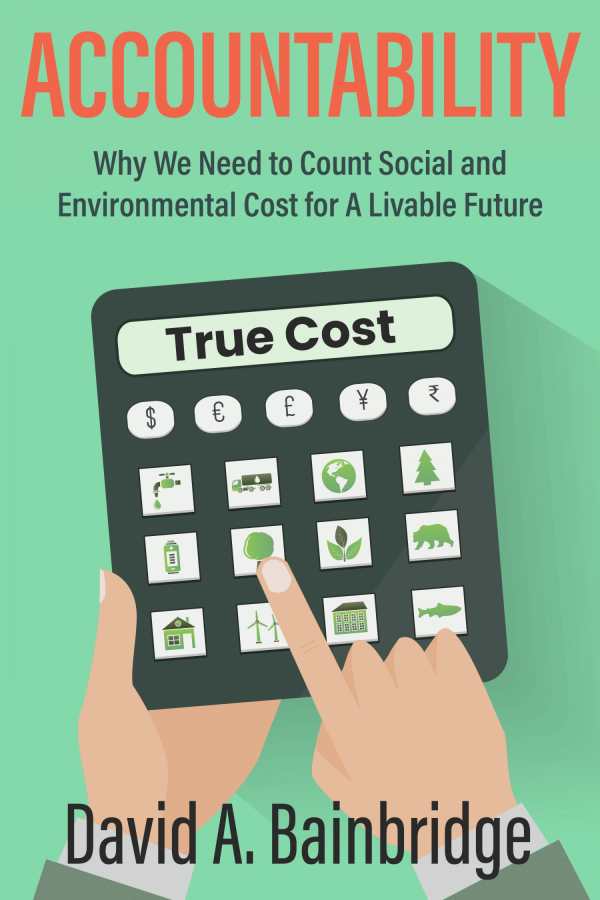Accountability
Why We Need to Count Social and Environmental Cost for a Livable Future
Passionate visions for immediate change fill Accountability, an environmentally minded book that suggests transforming how business is done.
With concern for the environment, David A. Bainbridge’s leadership book Accountability models prioritizing stewardship of the earth in one’s business.
Accusing corporations and business owners of foisting the environmental costs of their decisions on the general public, this book seeks to redress such practices. Its techniques include improved accounting and the stewardship of resources. It is ambitious in forwarding suggestions for holding polluters accountable by factoring in information such as the cost of a company’s emissions and requiring them to pay remediation fees for such impacts.
The book addresses complex topics with clarity, including those of true cost and comprehensive cost accounting, market completion, and cost reporting. Its development is logical, and it progresses toward in-depth considerations of the costs of agriculture, energy, and water, showing how its models can be applied in various industries, including the alcohol and transportation industries. For each topic, the book shows how its ideas can be put into practice, fleshing them out with mathematical evidence and support. Closer treatments of subtopics like fisheries and regulatory failures break such concepts down further.
The prose is accessible but authoritative, making complicated economic theories and scientific concepts (including those of sea rise and pesticide use) easier to understand. Photographs, charts, and financial statements are present to illustrate concepts such as the true cost of driving (factoring in land use, air pollution, and resource depletion). There are also financial statements included to highlight the differences between disparate practices, as of how conventional farming and organic farming differ in terms of their impacts on groundwater, soil erosion, and public health.
The book’s credibility is bolstered by its citations of the Centers for Disease Control and Prevention, the Milken Institute, and the Environmental Working Group on topics like how food supply problems impact public health and the ecosystem. And it builds to a call to action, warning of the urgency of threats including flooding, droughts, and wildfires. Its vision for a new economy includes strong incentives for ecological responsibility, and there are intriguing suggestions for what nonprofits, schools, and government agencies might do to effect change in relation to the climate crisis.
Eschewing accounting models that would protect doing business as usual, Accountability is a principled, environmentally attuned book that names methods for moving toward a sustainable future by calculating the side effects of corporate activities.
Reviewed by
Joseph S. Pete
Disclosure: This article is not an endorsement, but a review. The publisher of this book provided free copies of the book and paid a small fee to have their book reviewed by a professional reviewer. Foreword Reviews and Clarion Reviews make no guarantee that the publisher will receive a positive review. Foreword Magazine, Inc. is disclosing this in accordance with the Federal Trade Commission’s 16 CFR, Part 255.

